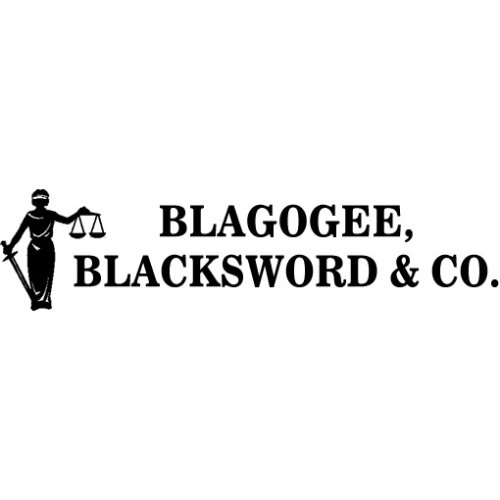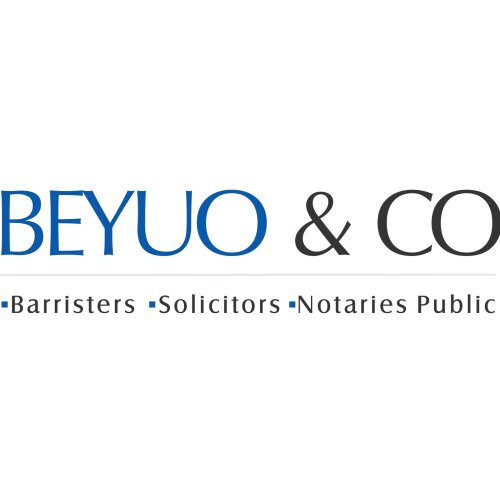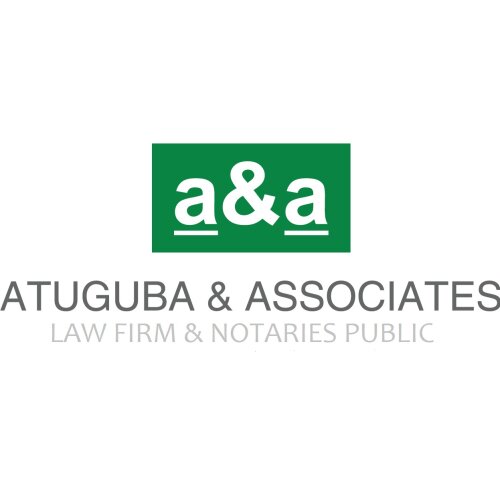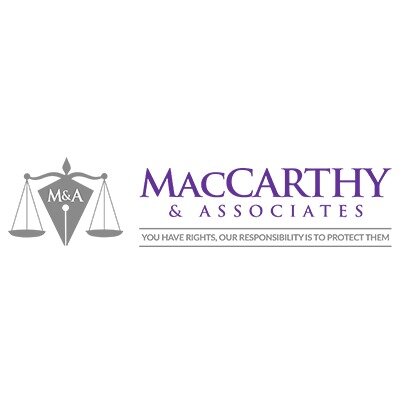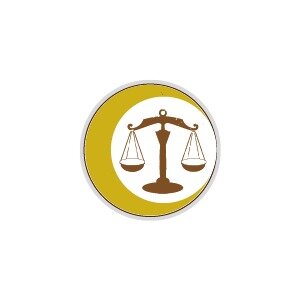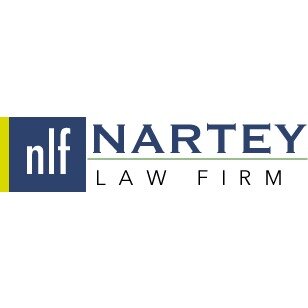Best Energy, Environment & ESG Lawyers in Ghana
Share your needs with us, get contacted by law firms.
Free. Takes 2 min.
Or refine your search by selecting a city:
List of the best lawyers in Ghana
About Energy, Environment & ESG Law in Ghana
Energy, Environment, and ESG (Environmental, Social, and Governance) law in Ghana covers the regulations, policies, and legal frameworks guiding the responsible use of natural resources, management of environmental impact, and the ethical operation of businesses. Ghana's energy sector is vibrant, with significant investments in oil, gas, and renewables. Environmental law regulates the protection and sustainable use of land, air, and water, while ESG principles are increasingly being adopted to ensure that organizations operate responsibly towards society and the environment. These legal areas are essential due to Ghana's commitment to achieving sustainable development and meeting global standards.
Why You May Need a Lawyer
Engaging a lawyer experienced in energy, environment, and ESG matters can be crucial for a variety of reasons. Typical situations where legal assistance is beneficial include:
- Securing licenses and permits for energy projects such as oil exploration, mining, or renewable energy installations
- Ensuring compliance with environmental regulations to avoid penalties or shutdowns
- Advice on structuring joint ventures or partnerships in the energy sector
- Handling disputes or negotiations with regulatory authorities
- Reviewing and drafting contracts in line with ESG requirements
- Navigating land use, environmental assessments, and community engagement
- Supporting businesses with ESG reporting and compliance obligations
- Defending against allegations of environmental harm or non-compliance
- Advising on tax, royalties, and other financial aspects of projects
- Guidance on integrating local content and social responsibility into business operations
A skilled attorney can help clients minimize risks, resolve conflicts, and achieve their business goals while remaining compliant with Ghanaian law.
Local Laws Overview
Ghana has developed several laws and regulations to govern activities in the energy and environmental sectors and to encourage ESG practices in businesses. Some of the key legislation includes:
- Energy Commission Act, 1997 (Act 541): Establishes the Energy Commission as the main regulator and provides for licensing of energy sector activities.
- Petroleum (Exploration and Production) Act, 2016 (Act 919): Governs the exploration, development, and production of petroleum resources and stipulates local content requirements.
- Renewable Energy Act, 2011 (Act 832): Promotes the generation and use of renewable energy sources and requires compliance with standards for such projects.
- Environmental Protection Agency Act, 1994 (Act 490): Sets up the EPA to regulate and enforce environmental standards, including pollution control and environmental assessments.
- Minerals and Mining Act, 2006 (Act 703) and its amendments: Regulates mineral exploration, mining operations, and environmental obligations for mining companies.
- Companies Act, 2019 (Act 992): Encourages good governance and transparency, which are key aspects of ESG.
Ghana is also party to various international agreements and protocols on environmental protection and sustainable development, and local companies are increasingly expected to align with global best practices in ESG.
Frequently Asked Questions
What government agencies regulate the energy and environment sectors in Ghana?
The Energy Commission regulates activities in the energy sector, while the Environmental Protection Agency oversees environmental matters. The Petroleum Commission and Minerals Commission are also key sector regulators.
Is an environmental permit required for all energy projects?
Yes, most energy projects require environmental permits and must undergo environmental impact assessments before commencement.
What is ESG and why is it relevant for businesses in Ghana?
ESG stands for Environmental, Social, and Governance. These are criteria used to evaluate a company's responsibility towards the environment, its social impact, and its internal governance. They are important for attracting investors, complying with laws, and building a positive reputation.
What are the penalties for non-compliance with environmental regulations?
Penalties can include fines, closure of facilities, revocation of licenses, or legal action, depending on the severity and nature of the non-compliance.
Are foreign companies required to partner with local companies in energy and mining sectors?
Yes, Ghana's local content laws require foreign companies to collaborate with Ghanaian partners and employ local staff to enhance technology transfer and local participation.
How can companies demonstrate ESG compliance?
Companies can conduct and publish ESG audits and reports, implement environmentally friendly operations, maintain strong governance structures, and invest in community development programs.
What role does the Environmental Protection Agency play in project approvals?
The EPA reviews and approves environmental impact assessments, issues permits, monitors compliance, and enforces environmental standards for all major projects.
What is the process for obtaining an energy sector license?
Applicants must submit detailed proposals to the Energy Commission, undergo rigorous due diligence, and fulfill technical, financial, and environmental requirements before a license is granted.
How are communities protected from the impact of energy and mining projects?
Ghanaian law requires community consultations, environmental impact assessments, and the implementation of mitigation measures to protect community rights and interests.
Where can I get help if I suspect an environmental violation?
You can report suspected violations to the Environmental Protection Agency, which has the authority to investigate and take enforcement actions.
Additional Resources
Individuals seeking information or support regarding energy, environment, and ESG issues in Ghana may find these resources helpful:
- Energy Commission of Ghana - Policies, licensing, and sector information
- Environmental Protection Agency (EPA) - Permitting, standards, and reporting environmental breaches
- The Petroleum Commission - Guidance for oil and gas operations
- Minerals Commission - Regulations for mining sector activities
- Ghana Stock Exchange - Sustainability reporting guidelines
- Chamber of Mines and Association of Oil Marketing Companies - Industry bodies providing additional guidance and advocacy
Next Steps
If you need legal assistance with an energy, environment, or ESG matter in Ghana, consider the following steps to get the right support:
- Gather all relevant documents and information about your issue or project
- Reach out to a lawyer or firm with expertise in Ghanaian energy, environmental, or ESG law
- Prepare a list of your questions and concerns to discuss during your consultation
- Request an explanation of your legal options, potential risks, and compliance requirements
- Work with your lawyer to submit necessary applications, complete compliance checks, or address disputes
- Continue to stay informed about changing regulations and industry best practices with the help of your legal advisor
Legal professionals in this field can provide valuable advice and representation, helping you ensure compliance, minimize risks, and achieve your business or personal goals responsibly.
Lawzana helps you find the best lawyers and law firms in Ghana through a curated and pre-screened list of qualified legal professionals. Our platform offers rankings and detailed profiles of attorneys and law firms, allowing you to compare based on practice areas, including Energy, Environment & ESG, experience, and client feedback.
Each profile includes a description of the firm's areas of practice, client reviews, team members and partners, year of establishment, spoken languages, office locations, contact information, social media presence, and any published articles or resources. Most firms on our platform speak English and are experienced in both local and international legal matters.
Get a quote from top-rated law firms in Ghana — quickly, securely, and without unnecessary hassle.
Disclaimer:
The information provided on this page is for general informational purposes only and does not constitute legal advice. While we strive to ensure the accuracy and relevance of the content, legal information may change over time, and interpretations of the law can vary. You should always consult with a qualified legal professional for advice specific to your situation.
We disclaim all liability for actions taken or not taken based on the content of this page. If you believe any information is incorrect or outdated, please contact us, and we will review and update it where appropriate.
Browse energy, environment & esg law firms by service in Ghana
Ghana Attorneys in related practice areas.
Browse energy, environment & esg law firms by city in Ghana
Refine your search by selecting a city.




